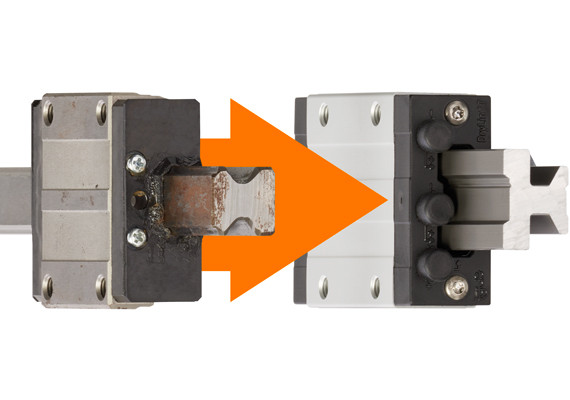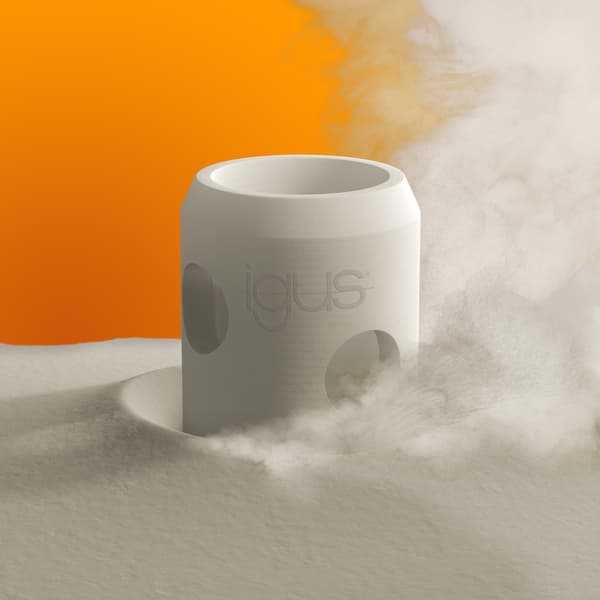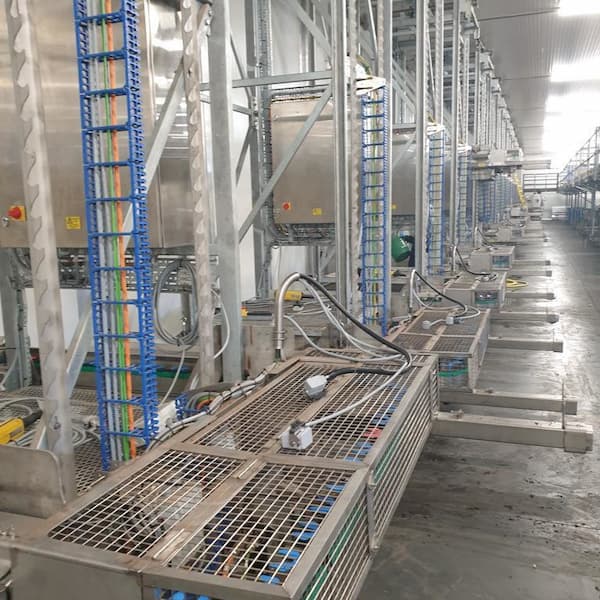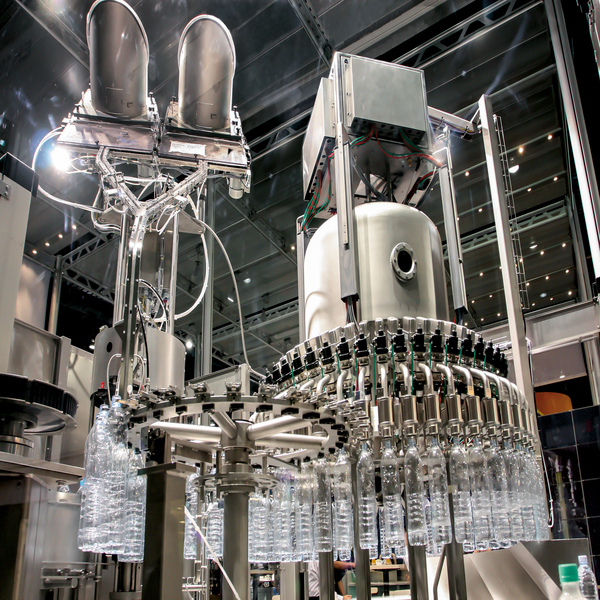The long-term cost benefits of drylin® systems over traditional ball bearing systems
There are a lot of discussions about which is better, linear plain bearing or ball bearing systems but it really depends on the application. What is clear, is that there are numerous instances where ball bearing systems can be changed for igus® drylin® linear systems and with this change, there will be a cost saving.
The principle of the igus® drylin range is “sliding instead of rolling”. The range of corrosion and lubrication-free components are combined with tribo-optimised, high-performance iglidur® polymers to create the sliding element.

As with all igus® products, the drylin® linear guides are suitable for use in a wide variety of environments and thanks to their dry-running operation and maintenance-free formula, the guides are insensitive to influences such as dirt, water, chemicals, heat or impact. Another key feature of these linear guides is they are almost silent. This is due to the intricate balance of materials used in their design. These modular systems allow for high flexibility with different rail guides, pillow blocks and accessories.
What are the main differences?
One of the main differences between the two system variants is the costs that could be saved. Switching to linear bearings from ball bearings can reduce costs by approx 40-80%! This cost saving is achieved in a few ways:

- When it comes to replacing the ball bearings once they are worn, you have to replace the whole bearing. With the igus® bearings, you can simply replace the liner. This is extremely beneficial in industries such as Food and Packaging, replacing a liner means a lot less or no downtime therefore reducing in long term costs.
- When traditional ball bearings start to fail, they stop rotating, the balls dig into the shaft and score it, often leading to catastrophic failure. This means you have to not only replace the bearings but also the shaft. With the igus® drylin® systems, this is not the case. Even if the liner wears, it will not cause any damage to the shaft, also avoiding sudden stoppage of machinery.
- Some of the igus® bearings have been uniquely designed to help aid replacing liners to avoid downtime. Bearings such as the WJUMA and TJUM-01-20 are split housings so it means you can change the liners without having to disassemble the whole system to replace worn bearings. This saves hours of engineering work and reduce downtime.
- Being lubrication- free means less labour time. No oil means no cost purchasing the oil and no time spent lubricating the bearings.
- Environmental practicalities are also a huge focus and with drylin® plain linear bearings the lack of requirement for lubrication means that they not only have zero impact on the ecology of the surrounding environment, but they also require a lot less energy to produce than their metal rolling element counterparts.
- With drylin® linear systems, there is limitless acceleration due to no moving parts. The same cannot be said for the ball bearing systems. These can skid if you get them to accelerate too fast and as mentioned previously, can score the shaft. Also, short movements are not good for the ball bearing systems as the ball bearings don’t circulate fully and the oil therefore doesn’t lubricate properly leading to failures.
If you are looking at reducing cost, reducing downtime, reducing environmental impact whilst increasing productivity then replacing the ball bearing systems with a drylin® linear plain bearing systems is the correct path for your application.




